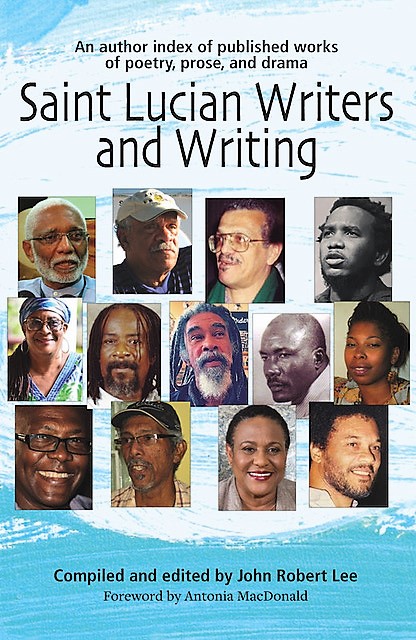Papillote
Press announces the forthcoming publication of "Saint Lucian Writers and
Writing: An author index of published works of poetry, prose, and drama"
compiled and edited by the Saint Lucian librarian and poet Robert John Lee,
with an introduction by Antonia MacDonald.
"A
fascinating bibliography that turns a list into the life of a nation."
Publication
date: 1 March 2019
ISBN:
9780995726314
Paperback/price: £9.99
Papillote
Press is a small independent publishing house based in London and Dominica.
ABOUT
THIS BOOK: This superb author index of poetry, prose and drama explores the
writing landscape of a small Caribbean island. Everyone – from the
internationally acclaimed Derek Walcott, to self-published unknowns – are
there. But this bibliography is not just about literature, it also features the
social, political and cultural dimensions of Saint Lucia, from scholarly essays
to the ephemera of funeral pamphlets and recipe books. It turns a list into the
life of a nation.
ABOUT THE
AUTHOR: John Robert Lee is a Saint Lucian poet, author, editor, journalist,
professional librarian, and teacher. His poetry and short stories have been
widely anthologised. His latest collection of poems, Collected Poems
1975-2015 was published in 2017. A graduate of the University of the
West Indies, he has taught literature, creative writing, and library science
for many years. He has also worked as a journalist in newspapers, radio, and
television. He lives in Saint Lucia.
IN PRAISE
of Saint Lucian Writers and Writing:
John
Robert Lee’s bibliographical work is a magnificent act of scholarship that
brings the rich and long history of Saint Lucian literary culture to life. Both
record and tribute, this inclusive and educative bibliographical study includes
an important introduction on the publication history and print culture of Saint
Lucia. A work of literary heritage in itself, this study also actively engages
publishers and researchers with an eye on the future as well as the
past. — Professor Alison Donnell, University of East Anglia, UK
Here you
can see everything— the things that didn’t last, the things that did, the
things that should have but didn’t. Here is the heft of a fierce and devoted
memory of all of our literature. And of what value is it? Well, it is a record
of trials and failures, a record of what time kept and what it didn’t, though
memory lunges back to claim it with an almost filial affection. — Vladimir
Lucien, poet, Saint Lucia
Compiled
with the sensitivity of the poet he is and the scrupulousness of the archivist
many know him to be, John Robert Lee’s Saint Lucian Writers and
Writing is vital work...This is a great start to discovering what the
storytellers of one country have been busy building with words—and we’re
talking beyond the usual suspects. — Robert Edison Sandiford,
author of the novel And Sometimes They Fly, and editor (with Linda M. Deane) of
Shouts from the Outfield: The ArtsEtc Cricket Anthology, Barbados
Always, I
am in awe of the industry, the monk-like devotion that John Robert Lee brings
to the self-chosen obligation of chronicling aspects of our artistic history...
In what seems like a season of neglect — and indeed destruction — of our
artistic and cultural heritage, this bibliography is an ark. And gratitude is
joyfully rendered to its builder. — Kendel Hippolyte,
poet/playwright, Saint Lucia
John
Robert Lee has produced this voluminous social reference document for the
world...A great gift to Saint Lucia. Give thanks! — Embert
Charles, communications specialist/cultural administrator, Saint Lucia
All the
world has heard of the late Sir Derek Walcott. But there have been many other
Saint Lucian writers of note, some of them with a regional reputation in the
Caribbean, others still little read outside of — or even within — Saint Lucia
itself. John Robert Lee’s Saint Lucian Writers and Writing offers
the first comprehensive bibliography of Saint Lucian literature...As both
scholar and general reader, I am grateful to John Robert Lee for this
comprehensive guide. — Paul Breslin, Professor of English,
Emeritus, Northwestern University, United States, and author of Nobody's
Nation: Reading Derek Walcott
For more
information visit the website www.papillotepress.co.uk or
email info@papillotepress.co.uk







